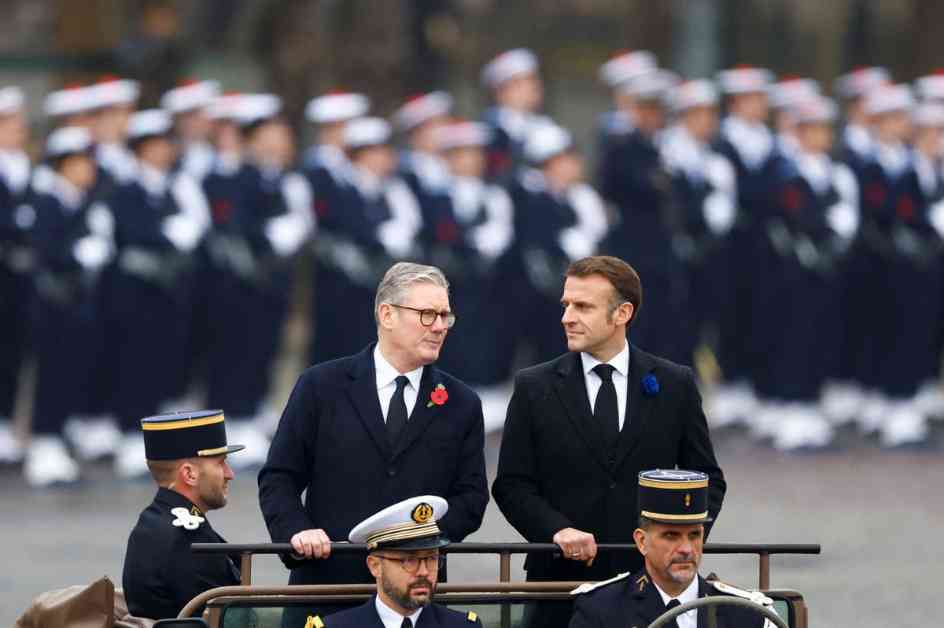Sir Keir Starmer has joined Emmanuel Macron for Armistice Day discussions in Paris, in a move seen as a significant step in building relationships with EU leaders post-Brexit. The two leaders are expected to address various foreign policy issues, including Ukraine and the conflicts in the Middle East.
These discussions come in the wake of Donald Trump’s re-election, raising concerns about US support for Ukraine and NATO. Defence Secretary John Healey expressed confidence in continued US backing for Ukraine against Russian aggression. He emphasized the importance of US-NATO alliances and downplayed fears of US withdrawal from NATO commitments.
As part of the Armistice Day commemorations, Starmer and Macron laid a wreath at the Winston Churchill statue in Paris and observed a minute of silence. This gesture signifies the importance of honoring the end of the First World War and the sacrifices made by the military community.
The presence of key political figures like Kemi Badenoch and Jonathan Reynolds at the Post Office inquiry underscores the government’s commitment to addressing important issues. Badenoch’s role as the new leader of the Conservatives and Reynolds as the Business Secretary highlights their involvement in crucial investigations.
Amidst speculation about potential trade wars and Brexit negotiations, the UK government remains focused on promoting free and open trade partnerships. The upcoming Mansion House speech by Rachel Reeves aims to advocate for free trade and strengthen economic ties with global partners.
In light of Trump’s re-election and potential trade policies, concerns about trade relations with the EU and the UK have emerged. Peggy Grande, a former political appointee in the Trump administration, predicts a preferential trade deal for the UK and potential tariffs targeting the EU to support a “successful Brexit.”
Defence Secretary John Healey dispelled reports of dissatisfaction from Ukrainian officials regarding the Labour government’s support. He affirmed the UK’s commitment to providing military aid to Ukraine and maintaining strong bilateral relations, refuting claims of strained ties under the new administration.
Overall, the discussions and events surrounding Armistice Day highlight the importance of diplomatic relations, foreign policy decisions, and economic considerations in shaping the UK’s future post-Brexit. As global dynamics evolve, maintaining strong alliances and addressing key issues will be crucial for navigating the challenges ahead.












